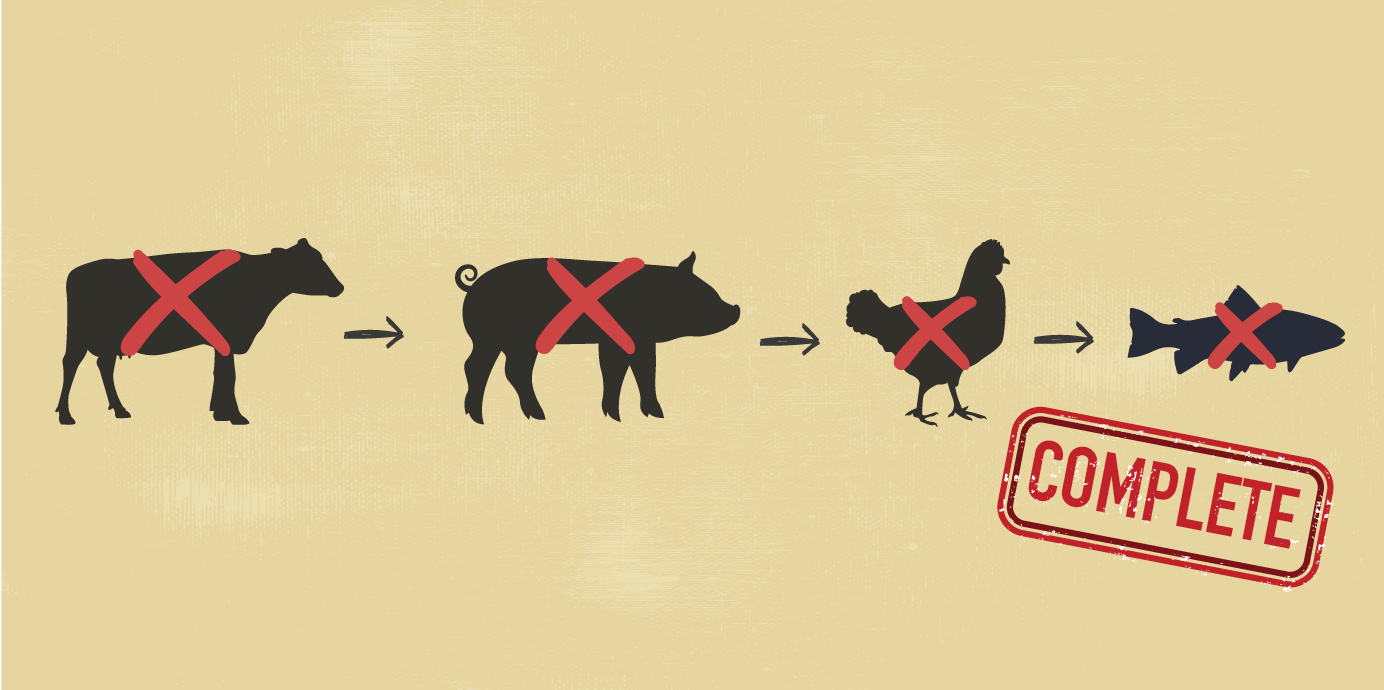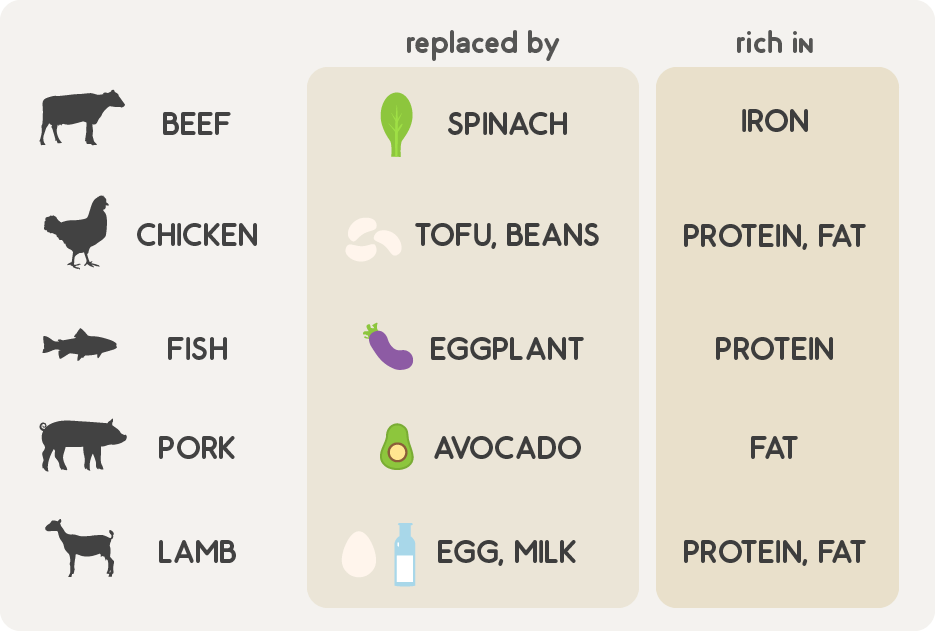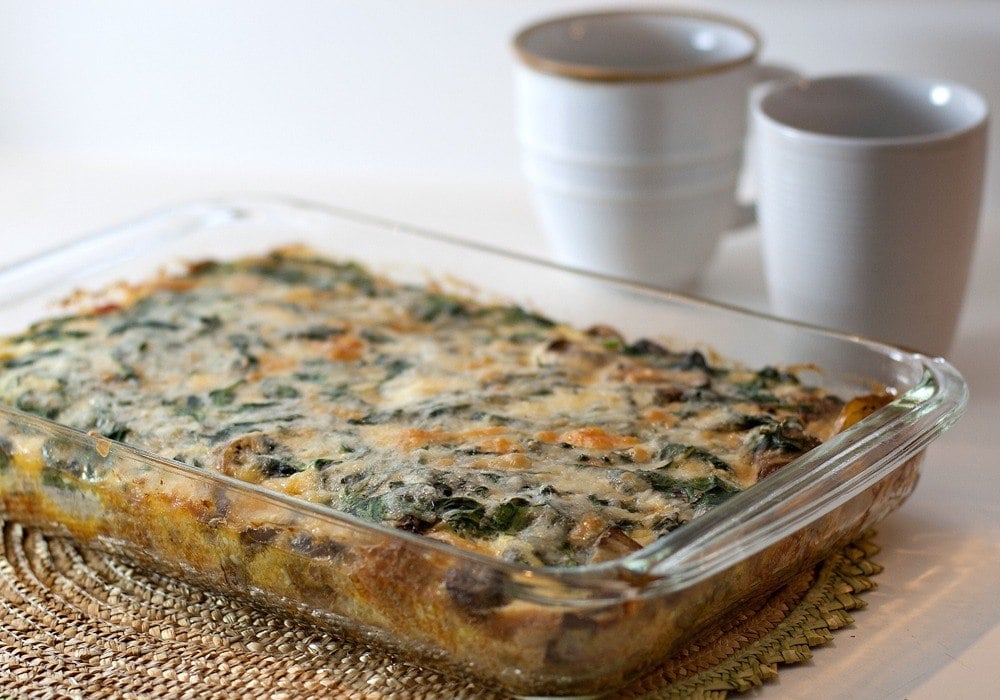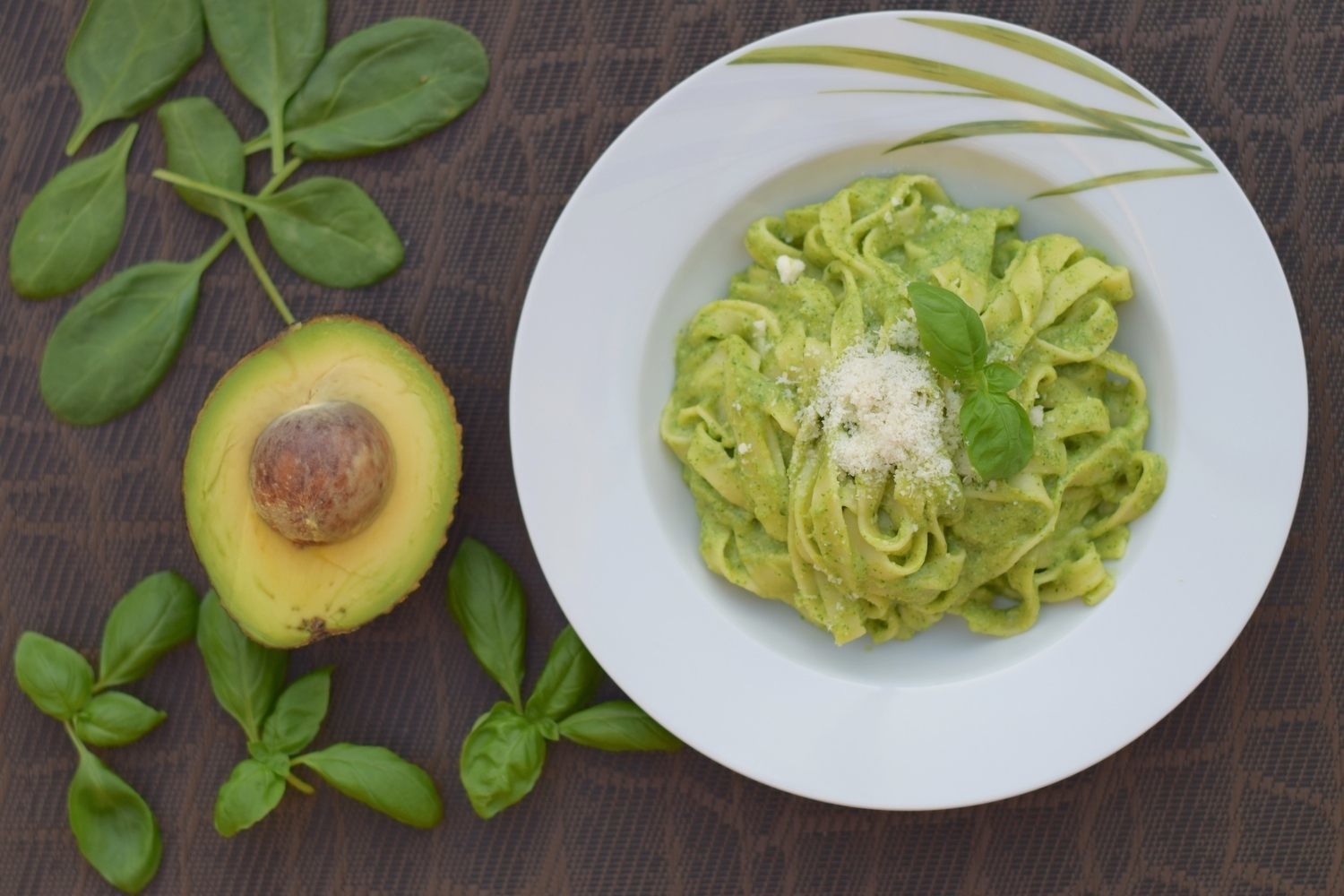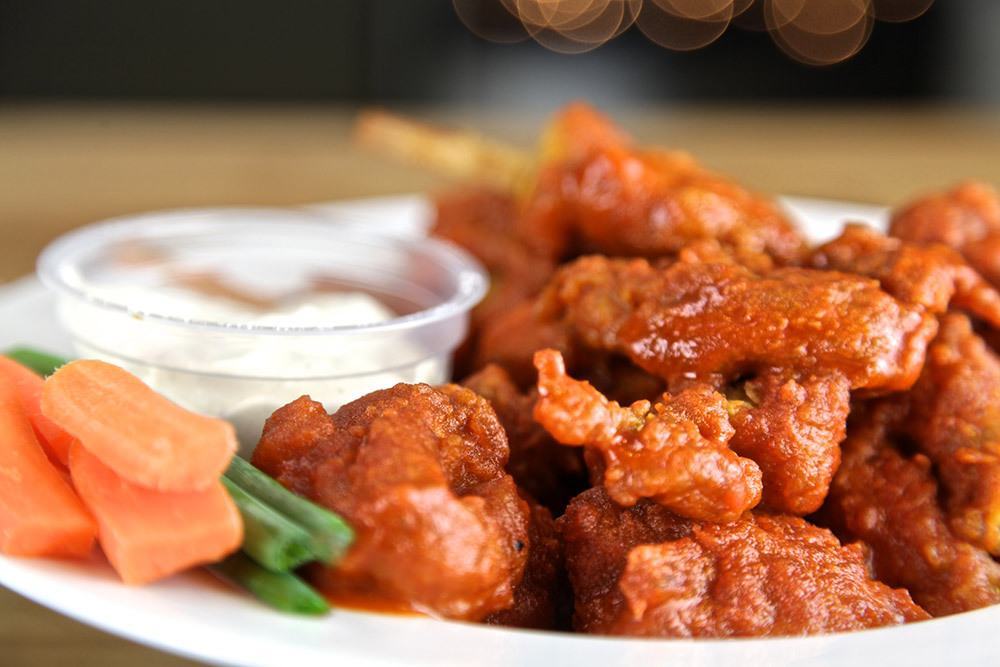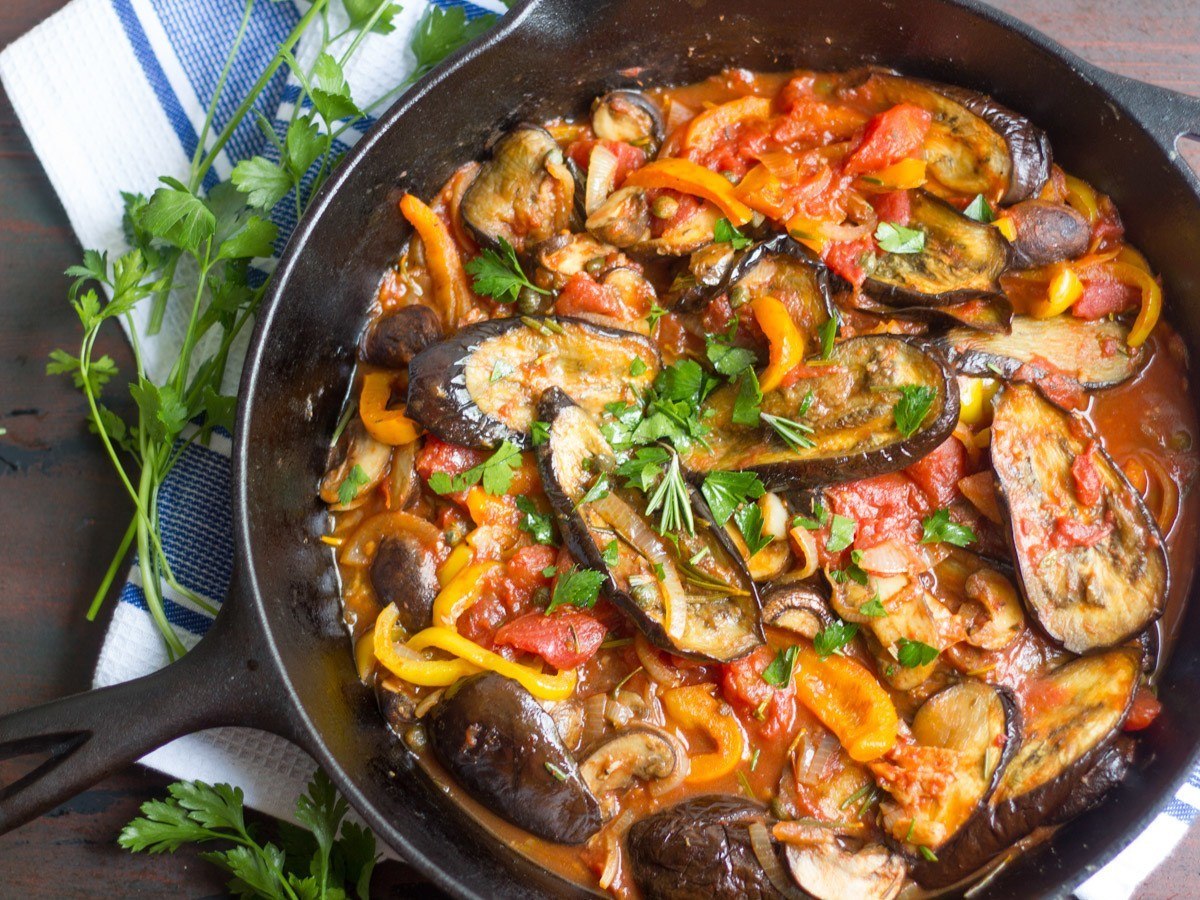Sometimes willpower might just not be enough. Apart from motivating yourself like keeping a list of reasons and benefits to become a vegetarian, it’s important to figure out some clever methods. I have been there before too. I stopped eating meat in 2006 when I was diagnosed with Multiple Sclerosis. I learned so much about how meat and animal products affect our health. Research shows that MS patients, and people dealing with other autoimmune conditions, that eat fewer saturated fats and “inflammatory foods” maintain better health (I would challenge that this goes for most everyone.). Giving up meat was one of the best ways I could really “do something” about my new diagnosis. I stopped eating meat to achieve better health. When I started my vegetarian journey, I started reading and through experimenting with different methods, I’ve consolidated the best tips below.
Don’t cut meat all at once. Start slowly
Instead of eliminating all meat from your diet, eliminate one animal at a time. For instance, start with beef. Don’t eat it for 30 days. Then eliminate pork in addition to beef. Continue to eliminate a category of meat every 30 days. Eventually you’ll elimate all meat and seafood, but because of the gradual approach, it won’t feel unmanageable. Adjust the timeline to better suit your needs.
Substitute meat with veggies strategically
To regain the nutrition we get from meat, we need some substitutes:
Why are those great foods to replace meat?
- Spinach Spinach is packed with iron when it is cooked. And it doesn’t contain as much fat as beef!
- Beans There are countless kinds of beans in the market, but all of them could do the same job: protein replacement. They are high in protein, and can integrated into various dishes, making it really easy to cook with.
- Tofu Another widely used choice as a meat substitute. Not only does it provide a good amount of protein, it is also a good source of iron and calcium, and is believed to help lower levels of bad cholesterol.
- Eggplant Eggplant have always been one of the most used replacement of meat. Italians have been using them to mimic meat for centuries when the price of meat is too high. It also provides similar nutrient values to other food in this list.
- Avocado Avocado provides a large amount of proteins, fats and enzymes which are all common in meat. It is considered one of the “superfood” with its high nutrients value. Most important, it taste wonderful.
- Dairy and eggs It really depends on which type of vegetarian you are, but some do consider dairy products and eggs to be out of the list. So if you are not aiming at going “complete vegan”, these two items could be great replacements for the lost of meat.
Beware of additives! Many of them are not vegetarian
Being vegan meant that you will have to start learning how to read labels on products. Many additives and thickeners like gelatin are animal products which you should avoid. Sometimes products might specify they are for vegan, but for most of them you will need to read the allergen label or the ingredient chart to find out. Remember to do some research and mark down the items that are not for vegetarian. Here are some names that you should know: Lists of non-vegan products • Carmine/cochineal (E120) – red pigment of crushed female cochineal beetle, used as a food colouring • Casein – from milk (a protein) • Lactose – from milk (a sugar) • Whey – from milk. Whey powder is in many products, look out for it in crisps, bread and baked products etc. • Collagen – from the skin, bones, and connective tissues of animals such as cows, chickens, pigs, and fish – used in cosmetics • Elastin – found in the neck ligaments and aorta of bovine, similar to collagen • Keratin – from the skin, bones, and connective tissues of animals such as cows, chickens, pigs, and fish • Gelatine/gelatin – obtained by boiling skin, tendons, ligaments, and/or bones and is usually from cows or pigs. Used in jelly, chewy sweets, cakes, and in vitamins; as coating/capsules • Aspic – industry alternative to gelatine; made from clarified meat, fish or vegetable stocks and gelatine • Lard/tallow – animal fat • Shellac – obtained from the bodies of the female scale insect Tachardia lacca • Honey – food for bees, made by bees • Beeswax (E901) – made from the honeycomb of bees, found in lipsticks, mascaras, candles, crayons etc. • Propolis – used by bees in the construction of their hives • Royal Jelly – secretion of the throat gland of the honeybee • Vitamin D3 – from fish-liver oil; in creams, lotions and other cosmetics • Lanolin (E913) – from the oil glands of sheep, extracted from their wool – in many skin care products and cosmetics • Albumen/albumin – from egg (typically) • Isinglass – a substance obtained from the dried swim bladders of fish, and is used mainly for the clarification of wine and beer • Cod liver oil – in lubricating creams and lotions, vitamins and supplements • Pepsin – from the stomachs of pigs, a clotting agent used in vitamins Veganuary: Vegan Label Reading Guide
Look for appealing vegan recipes to make it funnier
When you got into the vegetarian lifestyle, you also opened the gate to a paradise of new food. There are many recipes out there catering to vegetarians which are filled with creativity and uniqueness. You can have a wide range of food for you to explore and experience. Here are some recipe made with the food mentioned above, you might just find the one for your dinner tonight: Spinach and Mozzarella Egg Bake
Creamy Avocado and Spinach Pasta Vegan Buffalo Wings Eggplant Cacciatore
Read and educate yourself with more reasons to stay off the meat
While you are making the switch to becoming a vegetarian, read vegetarian blogs, Vegetarian Times magazine and books like
Eating Animals by Jonathan Safran Foer Eat Awesome by Paul Jarvis Why we Love Dogs, Eat Pigs and Wear Cows by Melanie Joy The Kind Diet by Alicia Silverstone Crazy, Sexy Diet by Kris Carr
These would reinforce your determination to become a vegetarian!
Just answer meat eaters’ questions kindly and don’t expect them to join you
You may experience resistance and questions about becoming a vegetarian, especially from close friends and family that don’t want to change. Be kind when answering questions and don’t expect anyone to join you. Share great vegetarian meals. Say “no thank you” when offered meat, and focus on your own commitment instead of what other people say or think.
